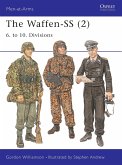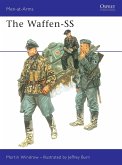The Waffen-SS, as fourth 'army branch' of the German army, is still surrounded with a certain mystical fog. Some divisions, mostly from the first levies, have general fame, like Hitler's body guard division, the 'Leibstandarte Adolf Hitler', or the 'Das Reich' division. However, the fact that Waffen-SS grew into a significant force - 38 divisions - during the war, is largely unknown. Yet, due to the expansion, the elite status of the Waffen-SS lessened. Leveled by its large numbers and the in-take of foreigners, the Waffen-SS eventually fell in the streets of Budapest, Berlin, Vienna and in the misty forests of the Ardennes. This book follows the chronological 'red thread' of the Waffen-SS from elite to mass army. It became clear that Hitler increasingly put more trust in his political soldiers. At the source of this was a deep disturst Hitler harboured for the Prussian nobility in the 'Wehrmacht'. After the Von Stauffenberg-attack in the summer of 1944, he leaned on the Waffen-SS more than ever during important battles. This was a continuation of the politics already deployed during the summer battle around Koersk in 1943. After Stalingrad, where the army held the power, the Waffen-SS got a central position. At Koersk, Tarnopol, Kowel, Normandy, the Ardennes, Budapest, Vienna, Arnswalde and Berlin, the Waffen-SS played an important role. Still, even they could not turn the tide. Hitler became frustrated and threatened with disciplinary measures against the Waffen-SS. 'They cannot give more than their lives', commented the Reichsführer-SS drily. Under the motto 'unsere Ehre heißt Treue', the Waffen-SS eventually fell.








